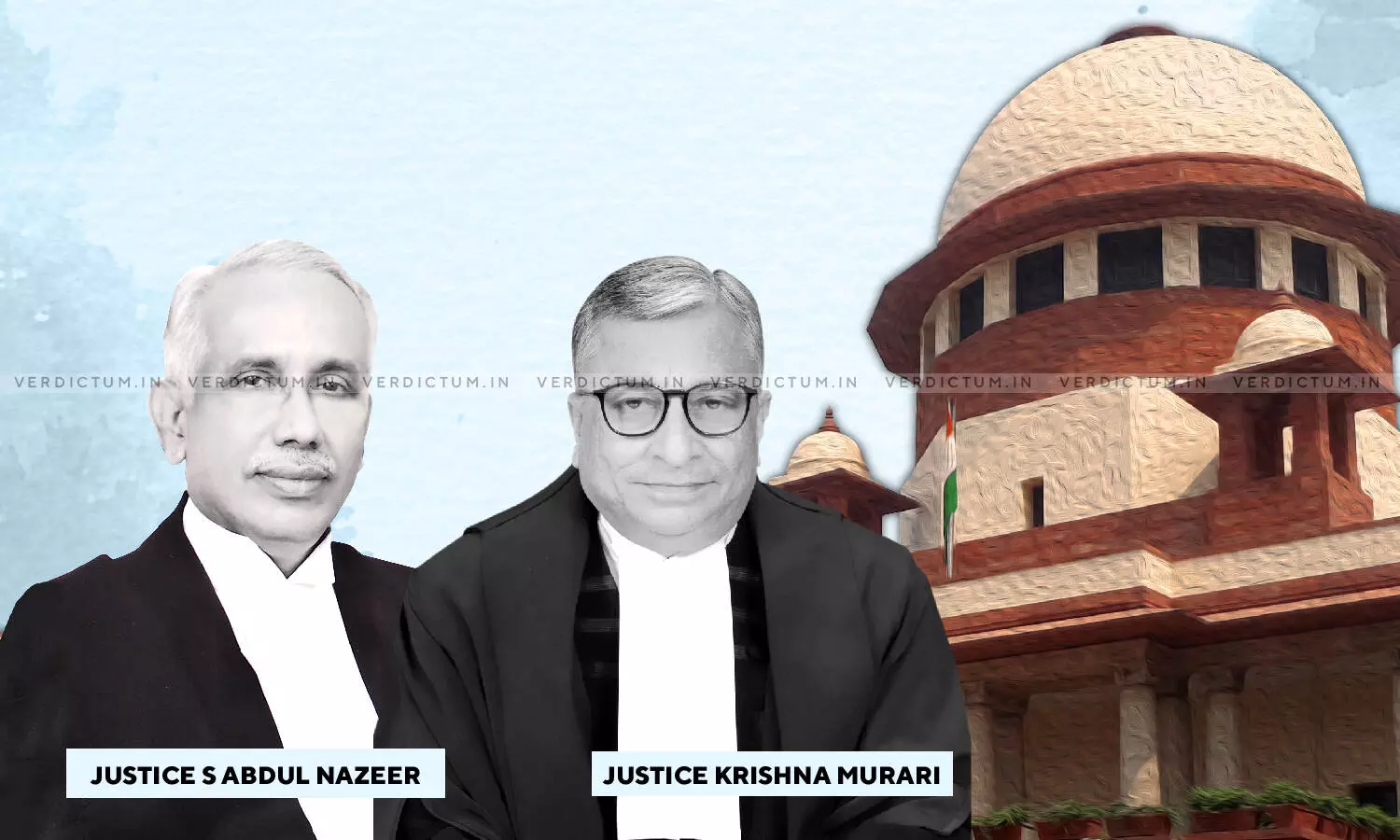
Must Directly & Substantially Affect Rights Of Parties- SC Explains Test To Determine Substantial Question Of Law
 |
|A Supreme Court Bench of Justice S Abdul Nazeer and Justice Krishna Murari has explained the test used to determine substantial question of law.
To that end, the Supreme Court held "For determining whether a case involves substantial question of law, the test is not merely the importance of the question, but its importance to the case itself necessitating the decision of the question. The appropriate test for determining whether the question of law raised in the case is substantial would be to see whether it directly and substantially affects the rights of the parties".
Senior Counsel Arvind P Dattar and Senior Counsel Dhruv Mehta appeared for the Appellants. Senior Counsel Nikhil Nayyar appeared for the Respondents.
In this case, the Appellants filed an appeal before the Supreme Court under Section 125 of the Electricity Act, 2003, against an order passed by the Appellate Tribunal for Electricity (APTEL). The Appellants alleged that the six issues that had been decided by the APTEL had given rise to a substantial question of law.
On the other hand, the Respondent stressed that Section 125 of the Act, read with Section 100 of the CPC requires a substantial question of law for an appeal, and the Appellants did not have a case.
The Supreme Court noted that there was a necessity for the existence of a "substantial question of law" arising from the judgment of the APTEL, in order for the Apex Court to exercise its jurisdiction under Section 125 of the Act, read with Section 100 of the CPC. In light of the same, the Court analysed the meaning of the term "substantial question of law" and observed that "the word 'substantial' as qualifying 'question of law' means, of having substance, essential, real, of sound worth, important or considerable. It is to be understood as something in contradistinction with technical, of no substance or consequence or academic."
In the same vein, the Court held that in order to determine if a case involves a substantial question of law, it is important to determine whether the question of law would directly and substantially affect the rights of the parties. In furtherance, the Court said that "If it is established that the decision is contrary to law or the decision has failed to determine some material issue of law or if there is substantial error or defect in the decision of the case on merits, the court can interfere with the conclusion of the lower court or tribunal. The stakes involved in the case are immaterial as long as the impact or effect of the question of law has a bearing on the lis between the parties."
The Court while answering one of the substantial questions of law held that it is not permissible to amend the tariff order made under Section 64 of the Electricity Act 2003 during the 'truing up' exercise.
"In our opinion, 'truing up' stage is not an opportunity for the DERC to rethink de novo on the basic principles, premises and issues involved in the initial projections of the revenue requirement of the licensee. 'Truing up' exercise cannot be done to retrospectively change the methodology/principles of tariff determination and reopening the original tariff determination order thereby setting the tariff determination process to a naught at 'true-up' stage.", the Court noted.
Holding that the appeals contained substantial questions of law, the Supreme Court allowed the appeals.
Cause Title: BSES Rajdhani Power Ltd. v. Delhi Electricity Regulatory Commission
Click here to download the Judgment